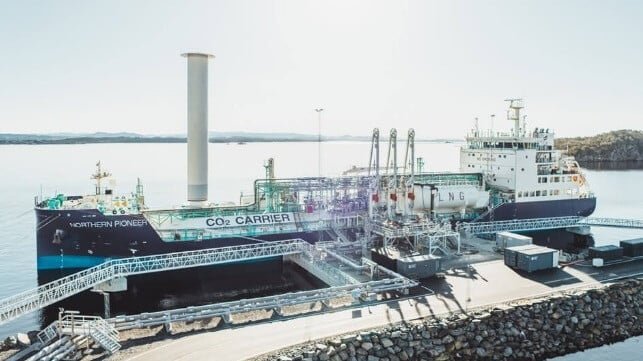France and Norway Collaborate on Groundbreaking Carbon Capture Agreement
Norway and France recently solidified an agreement that marks a significant milestone in the carbon capture and storage industry. The pact allows for the transportation of CO2 from French industrial sources to Norway for storage beneath the North Sea. This development comes as Norway celebrates the official commissioning of its first commercial CCS project.
The signing ceremony, held on June 23 in Norway during French President Emmanuel Macron’s visit, signifies a crucial step in both countries’ commitment to tackling climate change. Macron has been vocal about the importance of implementing CO2 capture programs as part of France’s climate strategy. The initial letter of intent between the two nations was signed in 2022, and France recently passed legislative amendments enabling the cross-border transport of CO2.
The agreement allows for the transportation of CO2 from major French industrial hubs like Le Havre, Dunkirk, and Saint-Nazaire to storage sites on the Norwegian continental shelf. This arrangement not only aids in managing French emissions but also fosters the growth of a unified European market for carbon capture and storage.
Terje Aasland, Norway’s Minister of Energy, lauded the agreement as a breakthrough for European climate cooperation. He emphasized how collaborative efforts can lead to practical solutions for reducing emissions and ensuring a sustainable future for industries in a low-carbon society.
The agreement is expected to provide stability and encourage the expansion of storage capacity on the Norwegian shelf. Last week, the Norwegian Government’s Longship project was declared operationally ready, marking the first commercially operational CCS project in the North Sea. It holds the distinction of being the first project with a full license for CO2 storage on the Norwegian continental shelf. Additionally, Norway has granted 12 exploration licenses and offered one more.
Northern Lights, the company responsible for the transportation and storage of CO2, has already begun the commissioning phase. Their vessel, Northern Pioneer, has transported liquefied CO2 from their first customer, Heidelberg Materials. The company’s second vessel, Northern Pathfinder, recently completed its christening and is set to commence service this summer. Plans are underway for the construction of two more vessels, and Northern Lights has received approval to expand its storage facility in Norway. Once completed, the facility will increase transport and storage capacity from 1.5 million tonnes to a minimum of 5 million tonnes of CO2 per year.

